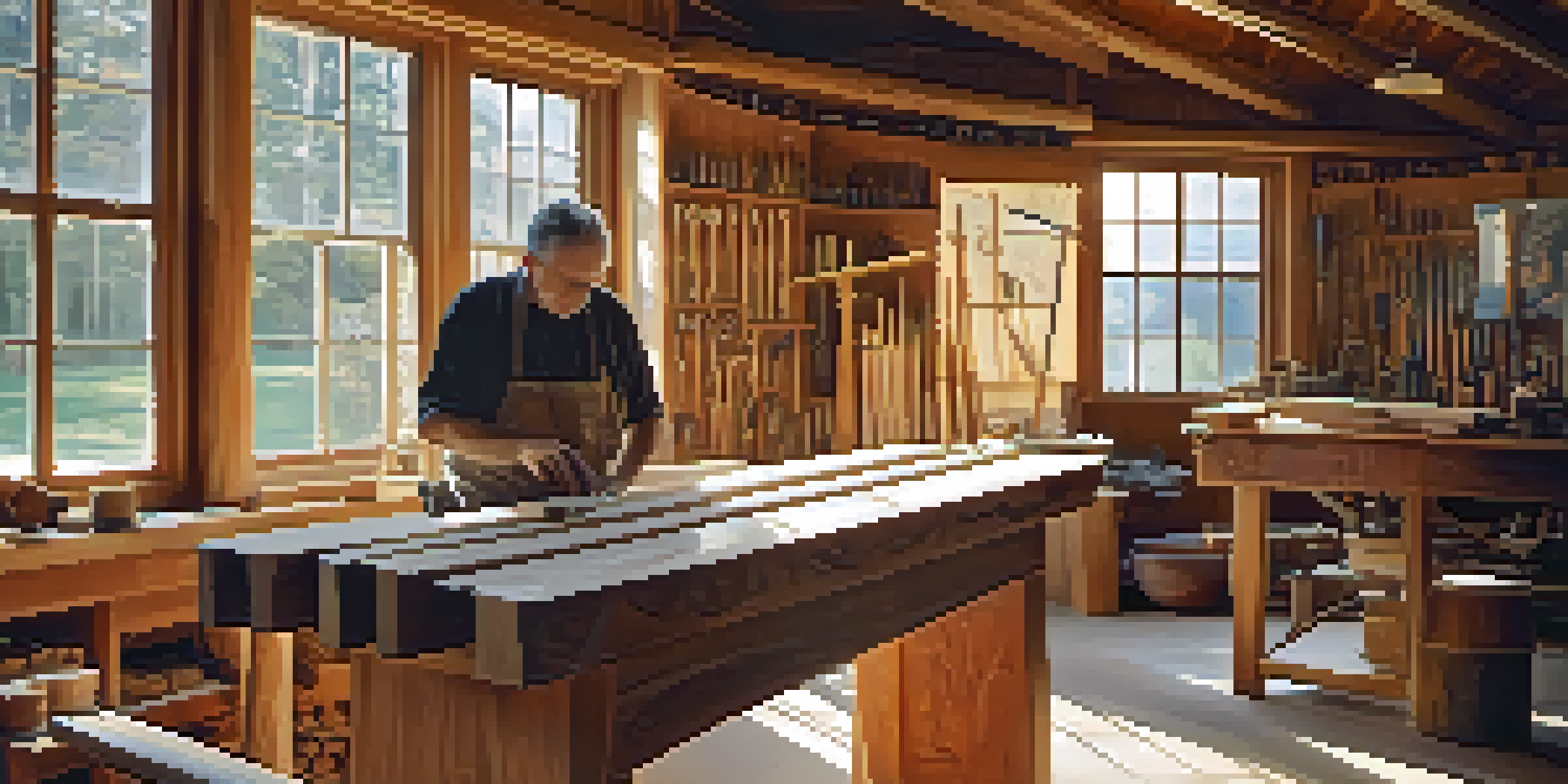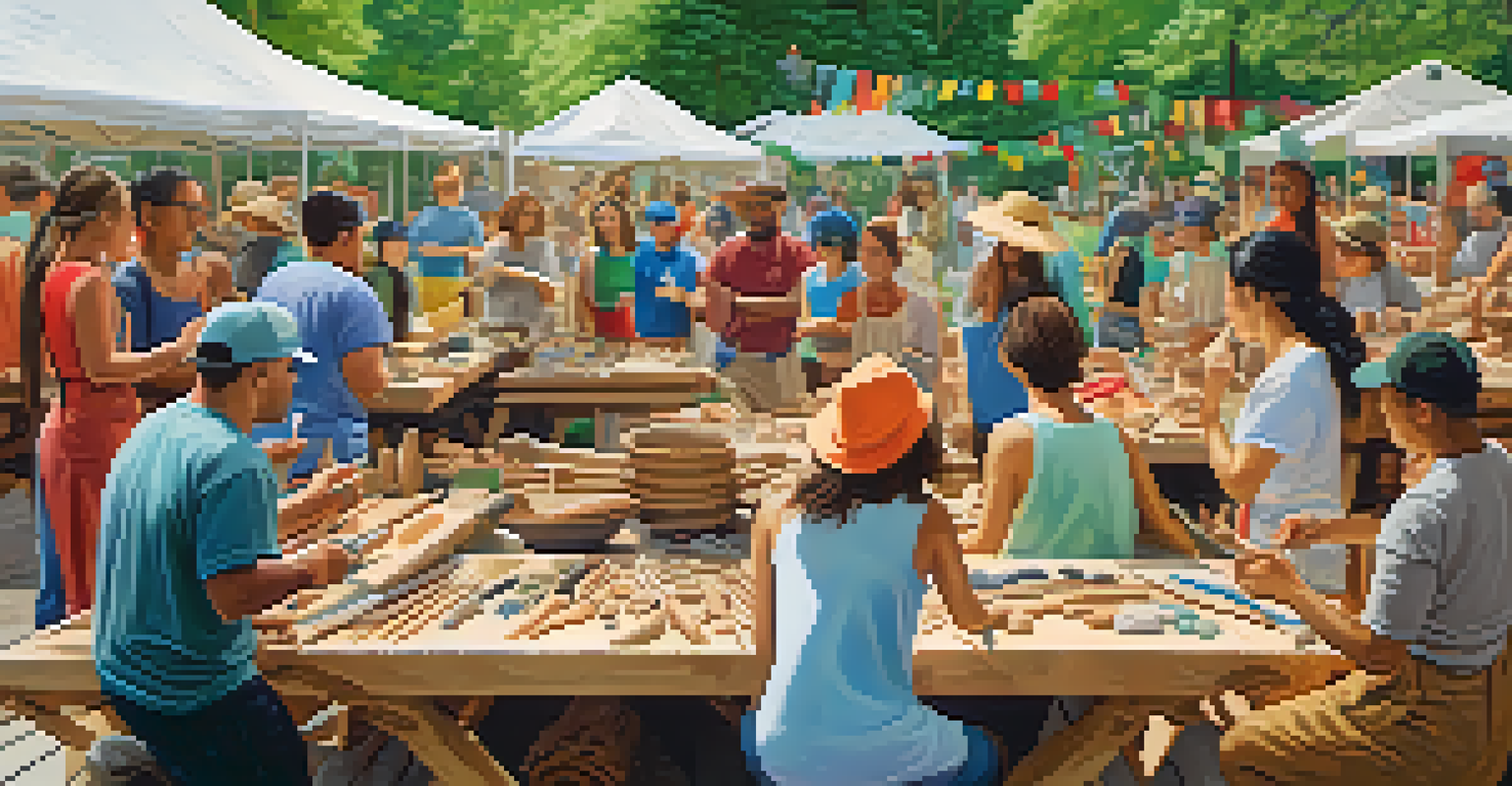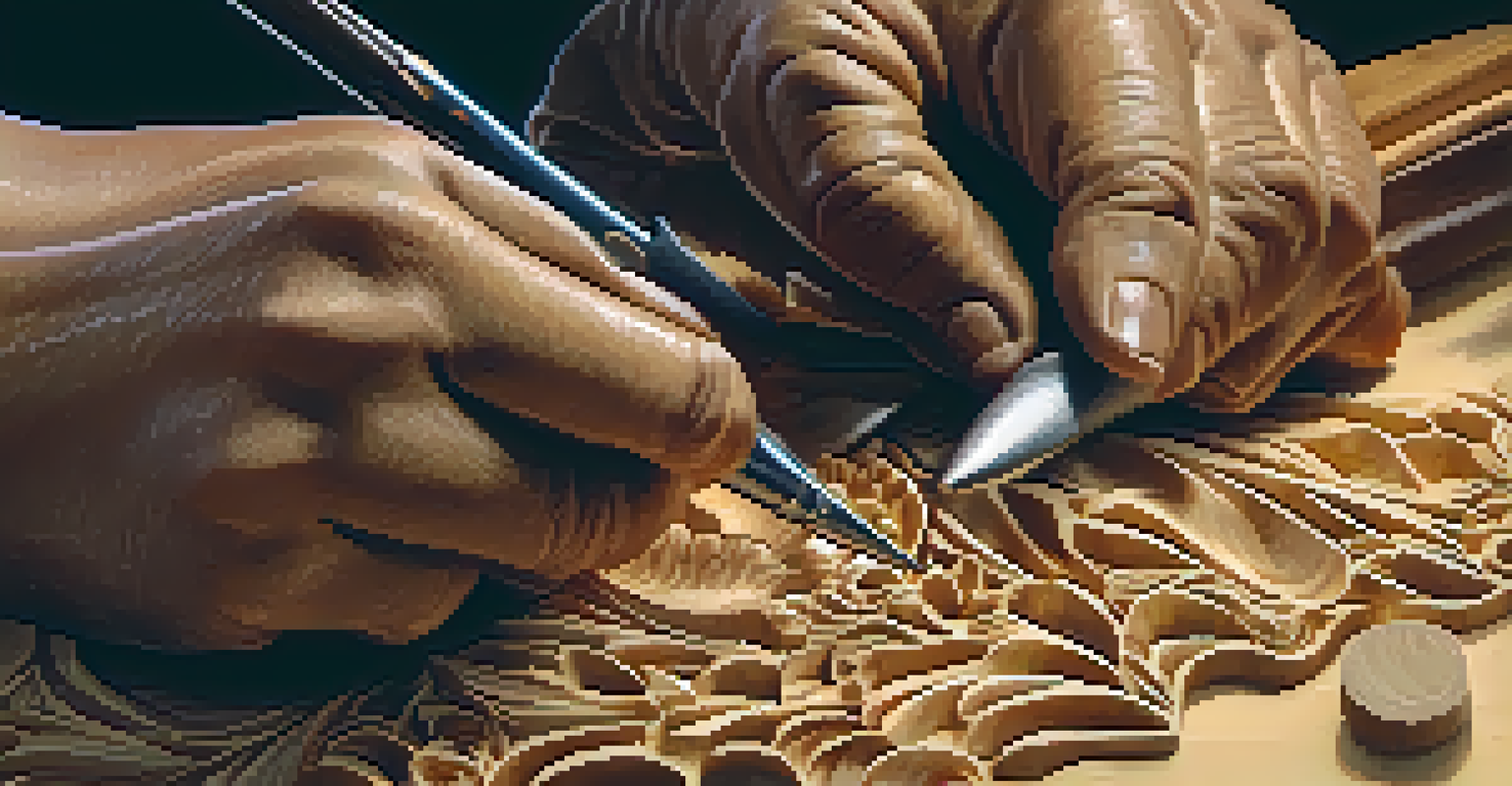The Role of Creativity in Carving and Psychological Growth

Understanding the Connection Between Creativity and Carving
Creativity is the heartbeat of carving, whether it's wood, stone, or even ice. When you engage in carving, you tap into your imagination, allowing ideas to take shape in tangible forms. This process transforms raw materials into unique creations, showcasing your personal touch and perspective.
Creativity takes courage.
As you carve, you’re not just shaping an object; you’re also shaping your thought patterns. The act of creating encourages problem-solving, as each cut and decision requires careful consideration. This interplay stimulates cognitive functions, enhancing mental flexibility and promoting innovative thinking.
Moreover, carving becomes a form of self-expression. It provides an outlet for emotions, allowing individuals to communicate feelings and experiences that might be hard to articulate with words. This expressive aspect can lead to deeper self-awareness and a better understanding of one's own psyche.
The Therapeutic Benefits of Engaging in Carving
Carving is more than just a craft; it can serve as a powerful therapeutic tool. The focused attention required for carving can promote mindfulness, helping individuals to escape the chaos of daily life and immerse themselves in the present moment. This practice can lead to reduced stress and anxiety, creating a calming effect on the mind.

As you carve, the rhythmic motion of your tools can become meditative, allowing for a flow state where worries fade away. This state of flow not only enhances creativity but also fosters a sense of accomplishment and satisfaction as you watch your project evolve. Every stroke brings a new sense of achievement.
Carving Boosts Creativity and Focus
Engaging in carving enhances creativity and focus, allowing individuals to immerse themselves in the present and develop innovative skills.
Furthermore, the act of creating something from scratch can boost self-esteem. Completing a carving project instills a sense of pride and confidence in one’s abilities, reinforcing the belief that you can overcome challenges. This can positively impact other areas of life, promoting resilience and a growth mindset.
Developing Problem-Solving Skills Through Carving
Carving requires a unique blend of creativity and analytical thinking, making it an excellent platform for developing problem-solving skills. Each carving project presents its own set of challenges, whether it's choosing the right tool, figuring out the design, or troubleshooting issues that arise during the process.
The only real mistake is the one from which we learn nothing.
As you navigate these challenges, you learn to approach problems from various angles. For instance, if a piece of wood splinters unexpectedly, you must adapt your technique or design, fostering resilience and adaptability. This mental exercise translates into real-world situations, enhancing your ability to tackle obstacles.
Moreover, sharing your carving journey with others, such as through workshops or online communities, encourages collaborative problem-solving. Engaging with fellow carvers exposes you to diverse techniques and perspectives, enriching your creative toolkit and further refining your skills.
Fostering Creativity in Educational Settings Through Carving
Incorporating carving into educational settings can unleash creativity in students. Hands-on activities like carving allow learners to engage with concepts in a tactile manner, making lessons more memorable and enjoyable. This interactive approach can ignite a passion for learning and exploration.
Additionally, carving encourages critical thinking and planning. Students must visualize their final product and strategize their approach, developing skills that are applicable beyond the classroom. This process nurtures innovative thinking, preparing students for future challenges in various fields.
Therapeutic Benefits of Carving
Carving serves as a powerful therapeutic tool, promoting mindfulness and reducing stress through its meditative and expressive nature.
Furthermore, the act of creating something tangible can enhance students' confidence. As they see their ideas come to life, they develop a sense of ownership over their work, fostering pride and a desire to continue exploring their creative potential.
The Role of Community in Carving and Personal Growth
Carving often brings people together, creating a sense of community among artists and enthusiasts. Joining carving groups or attending workshops can foster connections with like-minded individuals, providing support and encouragement. This communal aspect enhances the overall experience and enriches personal growth.
Through sharing techniques and ideas, carvers learn from one another and grow collectively. Constructive feedback from peers can lead to improvements in skills and creativity. Additionally, engaging with others can inspire new projects, pushing the boundaries of one’s own creativity.
Moreover, participating in community carving events can boost confidence and social skills. Whether it’s showcasing your work at a local fair or collaborating on a group project, these experiences nurture interpersonal relationships and encourage personal development, reinforcing the idea that creativity thrives in connection.
How Carving Enhances Focus and Concentration
Carving demands a level of focus that can significantly enhance concentration levels. The intricate details involved in shaping materials require undivided attention, which can train the mind to maintain focus over extended periods. This heightened concentration can be beneficial in many areas of life, from work to personal projects.
As you immerse yourself in the carving process, distractions begin to fade, and your mind becomes attuned to the task at hand. This practice of focused engagement can lead to improved productivity and efficiency in other endeavors, as your brain learns to filter out noise and concentrate on what matters.
Community Enhances Creative Growth
Participating in carving communities fosters collaboration and support, leading to personal growth and improved skills through shared experiences.
Additionally, the patience developed through carving can translate into other skills. Mastering techniques often requires time and persistence, fostering a mindset that values dedication and hard work. This patience is a valuable trait that can enhance overall well-being and lead to greater achievements.
Embracing Failure and Learning Through Carving
In the world of carving, failure is often an inevitable part of the journey. Each misstep can serve as a valuable lesson, teaching you resilience and the importance of perseverance. Embracing these failures allows you to grow both as a carver and as an individual.
When a carving doesn’t turn out as planned, it’s an opportunity to reflect and adapt. Instead of seeing it as a setback, you can approach it as a chance to learn and improve. This mindset encourages a growth-oriented perspective, which is essential for psychological development.

Moreover, sharing these experiences with others can create a culture of acceptance around failure. When carvers openly discuss their challenges, it reinforces the idea that mistakes are a natural part of the creative process. This shared understanding can foster a supportive environment where individuals feel empowered to take risks and explore their creativity.